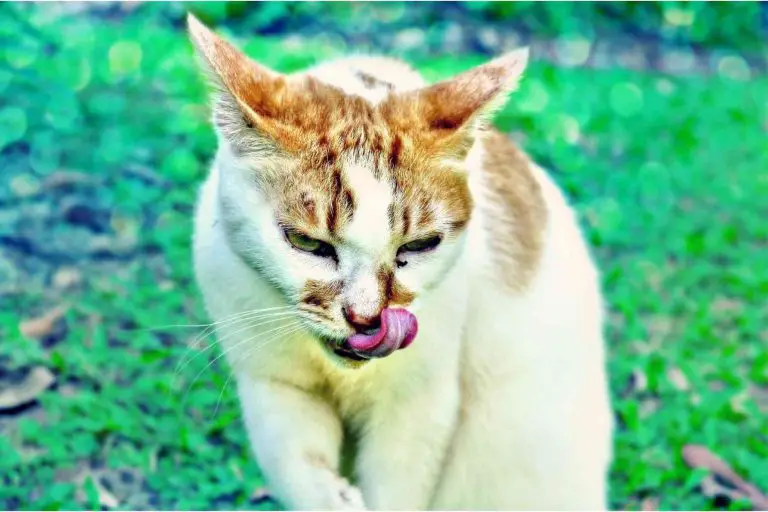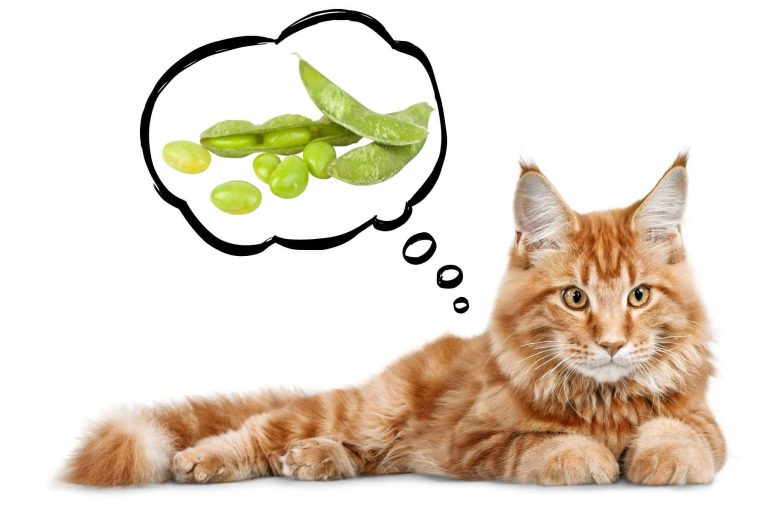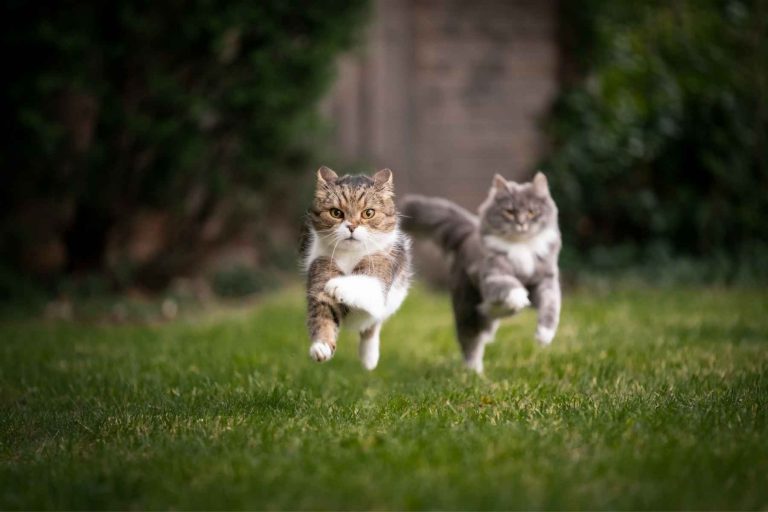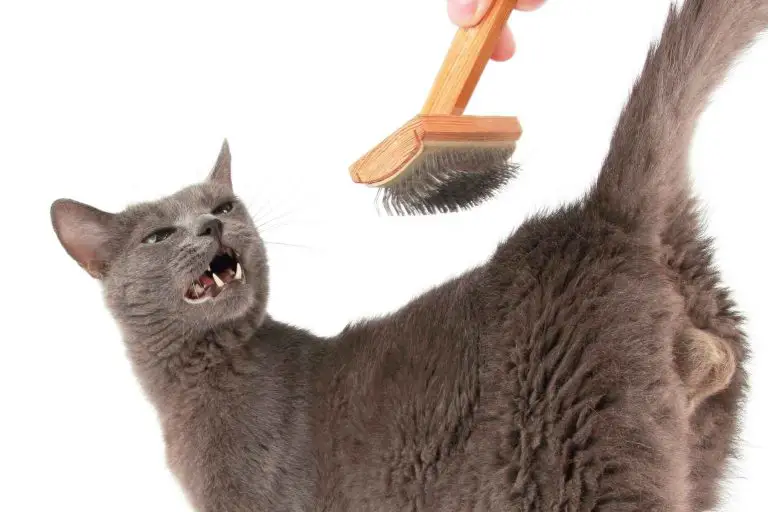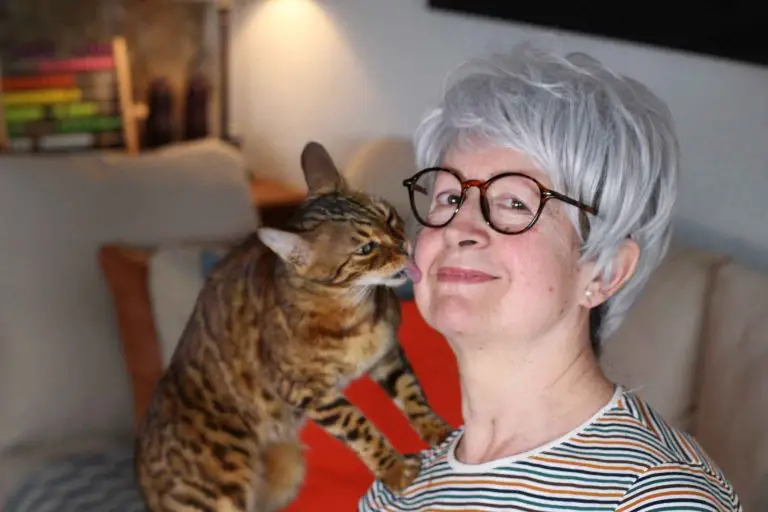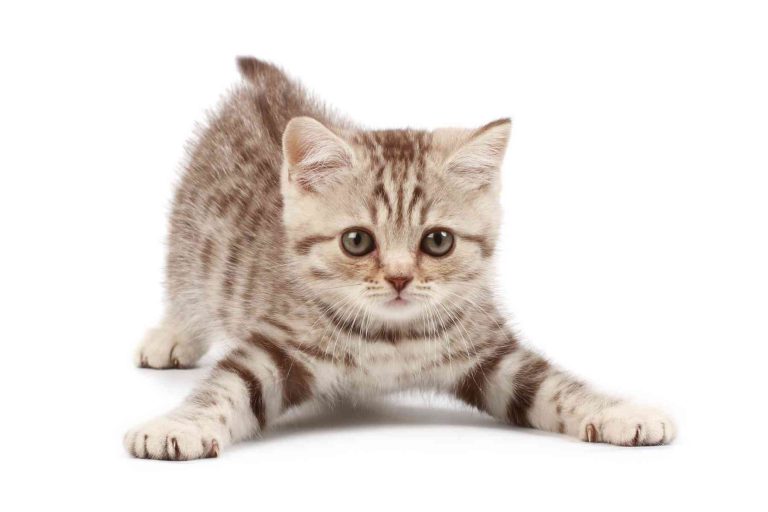Why Is My Cat Drooling When Sleeping?
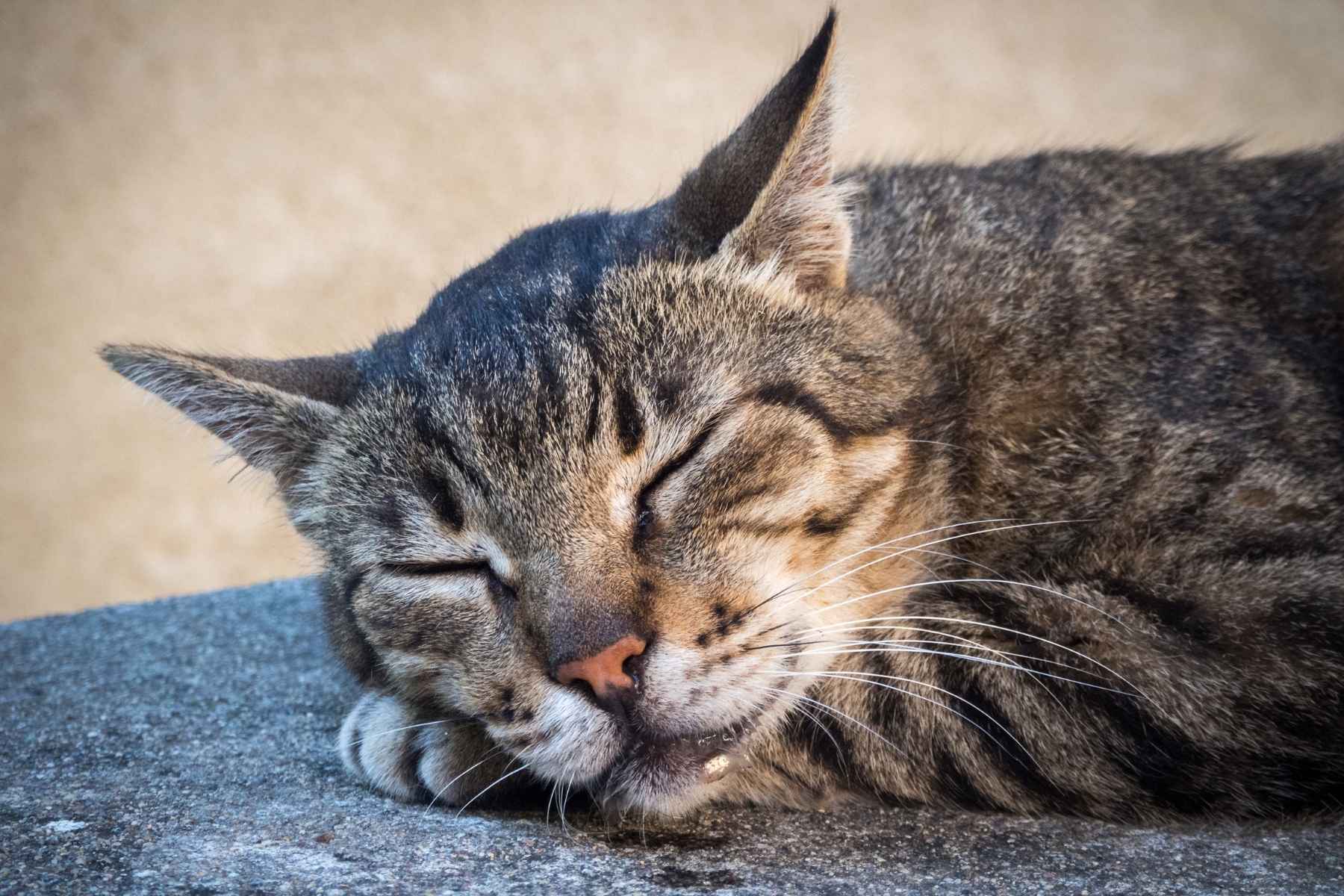
We’ve all watched our feline friends knead their favorite blanket, only to pick this fabric up and find it soaked. This is because when your cat relaxes, it can begin to drool as a sign of its contentment. However, it’s a little different if they’re sleeping.
While drooling can signify that your cat is in a deep sleep, it can also point to the fact that there is something wrong with your feline, so it’s essential to understand the differences between the two. Your cat could drool when sleeping because they feel highly relaxed, but you may want to consult your vet when the drooling becomes excessive.
Continue reading to discover what causes your cat to drool, why they drool during their sleep, and when you’ll need to consult with a vet.
Why Does My Cat Drool When Sleeping?
Your cat may drool when sleeping because they have entered a highly relaxed state. When cats experience this, they will only move minimally, keeping pretty still as they lie down. This can indicate a deep state of sleep.
On the other hand, drooling when sleeping can point to health problems in your feline. If you notice that your cat drools excessively, even when awake, check for other symptoms that could indicate a health issue, such as appetite loss, a body tilt, or panting.
Why Do Cats Drool?
We can separate the reasons why cats drool into three main categories.
Pathological Conditions – can cause pain, inflammation, and the inability to swallow.
Irritations – for which your cat uses their saliva to try and wash them away
Emotional stimuli – such as kneading, contentment, or food
Up to 85% of cats aged 3+ experience tooth or gum disease, which can cause a cat to drool. This happens as your feline tries to soothe or remove the irritation afflicting its mouth or throat. Common symptoms of dental disease include saliva that contains traces of blood or smells unpleasant.
In addition, cats may drool if they develop a respiratory condition or viral inflammation. These conditions often cause excessive saliva and signify that you need to take your pet to the vet as soon as possible.
Another cause of drooling is a foreign object lodged in the cat’s mouth or throat. This is a less likely possibility, but if you suspect your cat has swallowed something it shouldn’t have, examine its mouth and throat for any signs of a wedged object.
Why Is It Important For Cats To Salivate?
It’s crucial for cats to engage in salivation as it provides a coating for their food to aid in digestion, and it also helps them clean and disinfect wounds.
Salivation is a perfectly normal physiological behavior that occurs in all cats. However, if the amount of saliva fails to regulate itself, your cat could end up in a state called hypersalivation, which causes them to drool.
What Are The Causes For Cats Drooling In Their Sleep?
There are a few reasons why your cat could drool when sleeping.
One reason is that their salivary glands produce excessive amounts of saliva while they’re sleeping. When awake, your cat can swallow this saliva, but once they go to sleep, they don’t voluntarily swallow, and some may escape causing the cat to drool.
This is reasonably normal behavior for cats and nothing to worry about. However, there are other more sinister reasons why your cat could produce excessive amounts of saliva.
- Infection or tumor in their saliva glands
- Gastrointestinal or oral problems such as gums, tonsils, and the body parts that link the mouth to the stomach.
- Stomach irritants such as acid reflux or stomach issues resulting from the ingestion of poison.
- Failure of the kidneys and liver causing toxins to build and irritate the salivary gland.
Another reason your cat may produce excessive saliva is that there is an obstruction blocking the usual flow of saliva down the throat.
Causes of this range from upper respiratory tract infection to jaw misalignment. If these are present, they could result in open-mouthed sleeping or drooling. Your cat may also experience these symptoms if they have a foreign object stuck in its throat.
Is It A Bad Sign If My Cat Drools?
Cats can drool through excitement, fear, apprehension, or ill health. This is a physiological response to contentment, which we can experience ourselves. Think of the last time you woke up with a patch of drool on your pillow – it was no doubt a sign that you’d enjoyed a deep and peaceful sleep.
And the same may apply to your feline friend. If they are incredibly relaxed, they may excrete a small amount of drool as a sign that they are in a deep and calm sleep.
Does It Matter If My Cat Drools During The Day?
As any cat owner knows, our feline companions sleep a lot. In fact, they can sleep up to 20 hours in a single day.
This sleep occurs during the day and night, though the phases are different each time. Cats will engage mainly in deep sleep during the night and light sleep during the day.
As drooling often accompanies a deep sleep, we are reasonably safe to assume that this would occur in the evening rather than the day (when they are only cycling through light sleep stages).
Having said that, cats can still drool during an afternoon nap, and it’s not necessarily a cause for concern – it all depends on the context and circumstances.
If your cat drools a little bit at nighttime, it’s nothing to worry about. But, if it drools a lot during daylight hours, you may want to investigate further.
What Symptoms Can Accompany Drooling In Cats?
If you suspect there could be something wrong with your cat, look out for the accompanying symptoms.
If the drooling is accompanied by nausea, vomiting, or loss of appetite, it could point to kidney disease, gastrointestinal issues, or internal parasites. In this case, take your cat to the vet for treatment and advice.
In addition, look out for injuries and trauma to the mouth that could cause your cat to drool. Sometimes your cat drool a lot when they have electrical burns from chewing on cords or when they have sustained an injury by fighting with another cat.
What Should I Do If My Cat Drools When They’re Sleeping?
If your cat drools when sleeping, try to determine the cause. Every once in a while, when they appear deeply relaxed, it’s most likely nothing to worry about.
However, if the drooling continues through the day or occurs alongside other symptoms, you may need to investigate further. If your cat displays any of the following in accompaniment to their drooling, seek advice from your vet immediately.
- Difficulty swallowing
- Vomiting or regurgitating food
- Pawing on the mouth and face
If drooling is the only symptom, the cause is unlikely to be sinister. But, if in doubt, check with your vet, who can give your cat a thorough examination and provide you with some peace of mind.
Is It Normal For My Cat To Drool?
Yes, it’s normal for cats to drool, especially regarding food and signs of contentment. It all stems back to their time as a kitten, when they would knead their mother’s belly, stimulating her to produce milk.
Therefore, in your cat’s brain, the motion of kneading is often associated with a satisfying meal in a nurturing environment. And it’s this connection that causes your cat to drool.
But if other symptoms accompany the drooling, it could point to signs of ill health.
This can be a worrying behavior for pet owners as it’s not especially common. Still, it’s more important to look at the circumstances surrounding the drooling to understand what’s going on for your pet.
How Do I Know If My Cat Is Drooling Too Much?
Unlike dogs, drooling is not typical behavior for cats, and when they do engage in it, it is often intermittent, with only a small amount of saliva.
Signs To Look Out For
Regular drooling occurs:
- When your cat purrs or engages in kneading behavior
- During times of relaxation or contentment
- When they are stressed, such as during a car ride or a visit to the vet.
Irregular drooling occurs:
- If it is constant.
- When accompanied by ulcers, gum diseases, or injuries to the mouth and teeth.
- Any time your cat ingests toxins or foreign bodies.
Final Thoughts
If your cat drools in their sleep, it could be a sign that they’re very relaxed and enjoying a decent session of shut-eye. However, several other conditions can cause your cat to drool, such as poisons, diseases, or heatstroke.
Any time your cat presents with additional symptoms, take them to the vet, who will be able to detect any issues before they manifest in your feline. It’s an instinctive behavior for cats to hide pain, so always check with a professional if you’re unsure.

